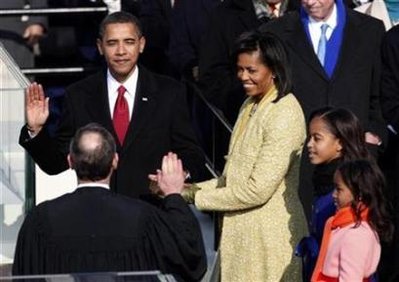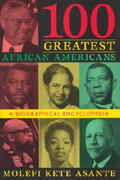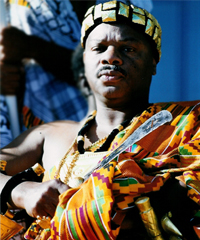
Yesterday was incredibly awesome. I was awestruck at his elegance, engaged by his grace and her grace and those beautiful children; they were lovely. It was another proud moment for me and most black folks who are fed up with modern-day minstrel shows in the form of ghetto shenanigans perpetuated as representing all of black America. I was proud to see a black American, President Barack Obama, in all his intellectual splendor, not just being a black face filling a space, but one qualified to be there. As I watched the inauguration, I had to ask myself, “What is this racial pride? Is it a boast in a racial competition or is it a declaration of I, too, am America?” (See below). As I pondered I realized that it was a little of both.
As a recovering strong black woman, I have my “How ya like me now!” racial moments. I want white people to envy black success and to feel ashamed for ever doubting our capability to achieve in high places. But as I move closer to Christian righteousness as it relates to race I more often declare, I, too, am America, though I am the darker sister. Acts 17:26 says that from the blood of one man God made every nation of men, and Psalm 139:14 says I am fearfully and wonderfully made. So based on Acts, white, Asian, Latin and Native American women and men are also fearfully and wonderfully made. With this in mind I will seek to be proud of others’ moments of success, not because they’re black but because they are some of God’s creations, brothers and sisters in humanity. Privileging race because of race slaps God in the face and disregards his intentionality of creating us all different. My move closer to Christian righteousness doesn’t always feel right but it is right. The walk is surely one of faith but one I am willing to take.
I, Too, Sing America by Langston Hughes
I, too, sing America.
I am the darker brother.
They send me to eat in the kitchen
When company comes,
But I laugh,
And eat well,
And grow strong.
Tomorrow,
I’ll be at the table
When company comes.
Nobody’ll dare
Say to me,
“Eat in the kitchen,”
Then.
Besides,
They’ll see how beautiful I am
And be ashamed–
I, too, am America.
Copyright 2009 By Rhonda J. Smith



